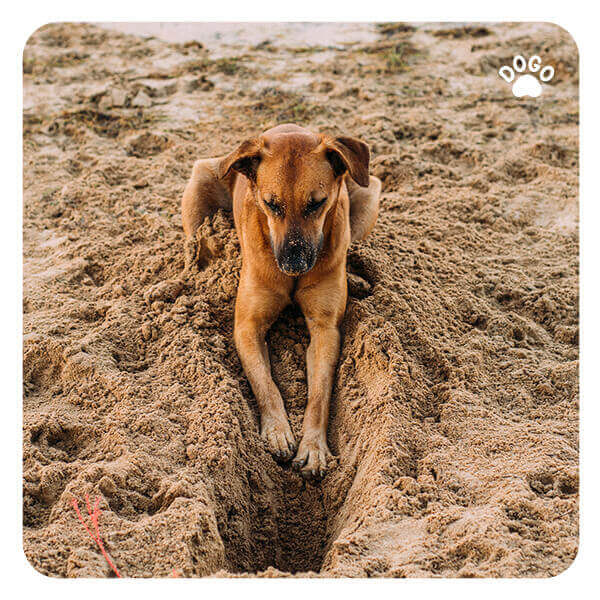 Digging is a natural behavior for dogs. It can be a source of frustration for many pet owners, but it’s important to understand that dogs dig for various reasons. Understanding the root cause of this behavior is crucial in addressing and redirecting it. In this blog post, we’ll explore the reasons behind digging and provide practical solutions to help you keep your furry friend from turning your backyard into a construction site.
Digging is a natural behavior for dogs. It can be a source of frustration for many pet owners, but it’s important to understand that dogs dig for various reasons. Understanding the root cause of this behavior is crucial in addressing and redirecting it. In this blog post, we’ll explore the reasons behind digging and provide practical solutions to help you keep your furry friend from turning your backyard into a construction site.
Understanding Why Dogs Dig
Before diving into solutions, it’s essential to understand why dogs dig in the first place. Dogs may dig for several reasons, including seeking comfort, hunting small animals, burying items, escaping, or simply out of boredom. It’s important to observe your dog’s behavior to determine the underlying cause of their digging. Recognizing the motivation behind their behavior can guide you in finding the most effective strategies to address it.
Addressing Boredom and Lack of Exercise
One common reason dogs dig is due to boredom or a lack of physical and mental stimulation. Dogs are naturally active animals that require regular exercise and mental challenges to stay content. If your dog is digging out of boredom, it may be a sign that they need more activities to keep them engaged. Providing regular walks, playtime, and interactive toys can help channel their energy in a positive direction, reducing the likelihood of them resorting to digging.
Creating a Comfortable Environment
Some dogs may dig to create a comfortable resting spot. This behavior is often seen in breeds that have a natural instinct to burrow or create a den-like environment. If your dog is digging to find a cool spot to lie in, consider providing a shaded area with a comfortable bed or mat. Additionally, ensuring that your dog has access to fresh water and shelter from extreme temperatures can help discourage them from digging for comfort.
Managing Separation Anxiety
For some dogs, digging may be a manifestation of separation anxiety. When left alone, these dogs may engage in destructive behaviors, such as digging, as a way to cope with their anxiety. If you suspect that your dog’s digging is related to separation anxiety, it’s important to address this issue through training, desensitization, and providing a secure and comforting environment for your dog when you’re away.
Redirecting the Behavior
Once you’ve identified the underlying cause of your dog’s digging, it’s time to redirect their behavior. Positive reinforcement is key in training your dog to abandon digging as a habitual activity. Offering alternative activities such as interactive toys, puzzle feeders, or engaging in structured play can redirect their focus and energy. When your dog refrains from digging and shows positive behavior, rewarding them with praise and treats can reinforce the desired conduct.
Creating a Designated Digging Area
Consider creating a designated digging area for your dog. By designating a specific spot in your yard where digging is allowed, you can satisfy your dog’s natural instinct while preserving the rest of your garden. Encourage your dog to use this area by burying toys or treats, and praise them when they dig in the designated zone. With consistent reinforcement and positive association, your dog will learn to confine their digging to the allocated space.
Seeking Professional Assistance
If your dog’s digging behavior persists despite your efforts to address it, seeking the guidance of a professional dog trainer or behaviorist may be beneficial. A professional can assess your dog’s specific behavior and provide personalized strategies to help modify their conduct. With expert guidance, you can work towards effectively managing your dog’s digging behavior and strengthening your bond with your furry companion.
In conclusion, understanding the reasons behind your dog’s digging behavior is crucial in addressing and managing this natural instinct. By providing adequate stimulation, creating a comfortable environment, and redirecting their behavior through positive reinforcement, you can help keep your dog from excessive digging. Remember, patience and consistency are key when working with your furry friend to modify their behavior. With the right approach and understanding, you can foster a healthier and happier relationship with your beloved canine companion.
[/fusion_text]

